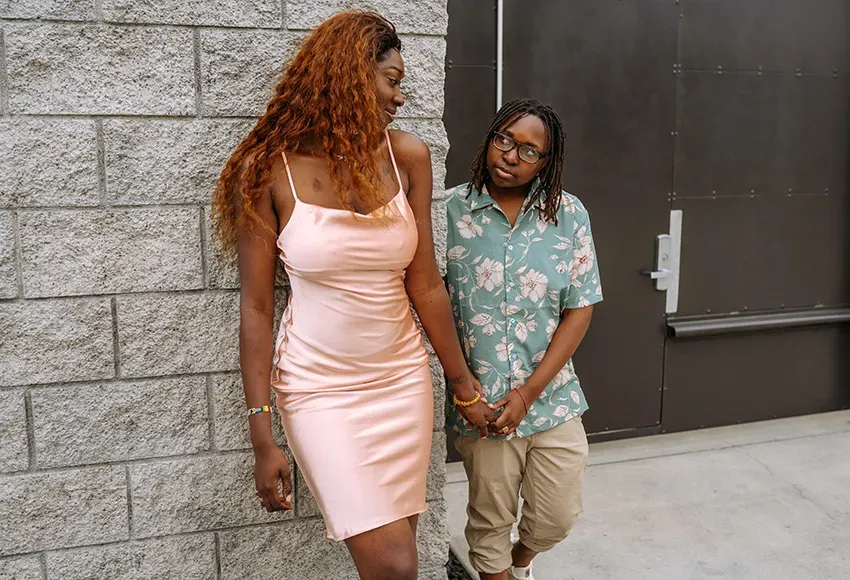
Ask Izzy is a biweekly advice column about relationships, mental health, and sexuality. Written by Isabel Mata – a Seattle-based lifestyle writer, podcast host, and mental health advocate – Ask Izzy offers tangible expert advice so all readers can have stronger relationships, better sex, and healthier mindsets. Submit your question today by filling out this survey.
Dear Izzy,
I HATE PDA [public display of affection]. But my girlfriend loves it. She isn't trying to full-on make out with me at a grocery store (LOL) but a peck on the lips here and there... Even hand-holding makes me nervous. To be honest, I'm afraid it's some deep-seated anxiety about somebody hating us for being Gay. I just "came out of the closet" a couple years ago. My girlfriend feels rejected, and I feel guilty. How do I navigate this? Help!
– Unaffectionate in U District
Dear Unaffectionate,
Thank you for sharing with me! You are so valid in your feelings, and it's entirely normal to experience anxiety as you navigate your Queer identity and the complexities that come with it. It's important to remember that embracing your authentic self is a journey, and it's entirely okay to have reservations along the way. Be patient with yourself, and go at your own pace.
You've already identified that your aversion to PDA is probably linked to anxiety about how your same-sex relationship might be perceived by others. I recommend sitting with these thoughts, maybe even take some time to journal about them, where they might have come from, and how these fears might be impacting your relationship.
It's clichéd but true, communication is key to maintaining a healthy relationship. Sit down with your girlfriend and share your feelings openly and honestly. Let her know you love her and are actively working on it and that you value your relationship deeply.
One way to actively work on this is to set boundaries. Discuss what specific acts of PDA make you nervous and explain why. Are you willing to compromise by finding a middle ground in a way you both are comfortable with, such as holding hands in certain situations or sharing affectionate moments in more private settings?
Once you have established boundaries, start with low-pressure environments and work your way up to more public settings. And celebrate the small milestones.
This gradual approach can help your nervous system relax over time. If the physical anxiety persists and significantly impacts your relationship, consider a therapist or counselor, who can provide tools, strategies, and offer support for more effectively managed this anxiety.
Finally, talk to other Queer people about their experiences! They might be able to offer insight or advice on how they have navigated similar challenges. If you are comfortable, you could even share your own feelings. Being vulnerable is a great way to connect with people!
The main takeaway is that relationships are built on trust, compromise, and understanding. It's not about changing who you are but rather finding a balance that allows both you and your girlfriend to feel secure and loved. As you continue to grow as a couple, your comfort levels will evolve and, who knows, you might even be a person who loves PDA one day.


